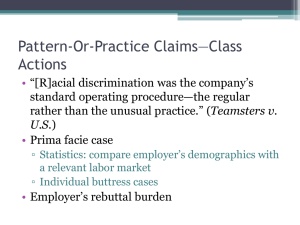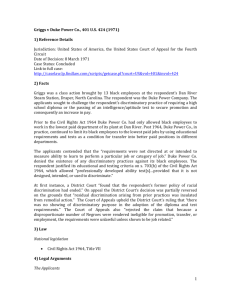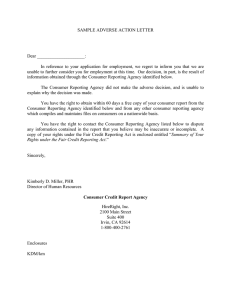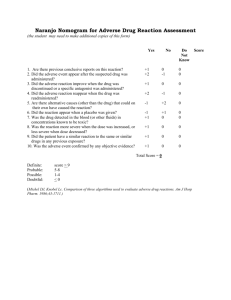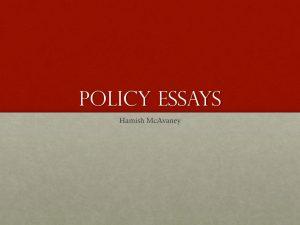Uniform Guidelines on Employee Selection Procedures
advertisement
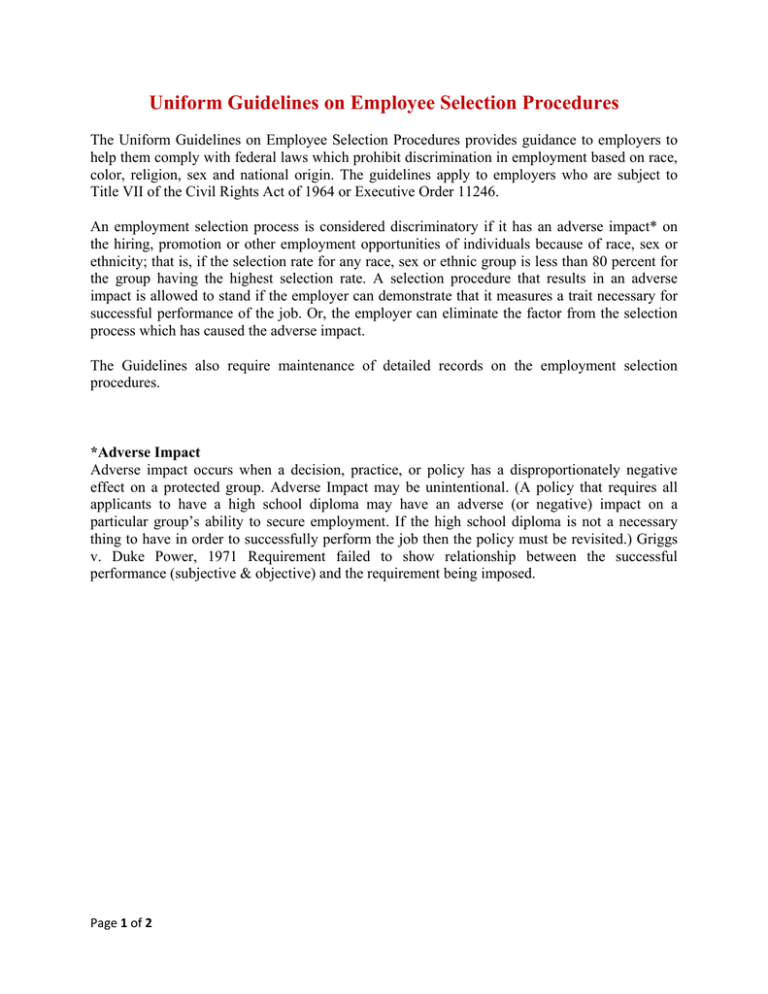
Uniform Guidelines on Employee Selection Procedures The Uniform Guidelines on Employee Selection Procedures provides guidance to employers to help them comply with federal laws which prohibit discrimination in employment based on race, color, religion, sex and national origin. The guidelines apply to employers who are subject to Title VII of the Civil Rights Act of 1964 or Executive Order 11246. An employment selection process is considered discriminatory if it has an adverse impact* on the hiring, promotion or other employment opportunities of individuals because of race, sex or ethnicity; that is, if the selection rate for any race, sex or ethnic group is less than 80 percent for the group having the highest selection rate. A selection procedure that results in an adverse impact is allowed to stand if the employer can demonstrate that it measures a trait necessary for successful performance of the job. Or, the employer can eliminate the factor from the selection process which has caused the adverse impact. The Guidelines also require maintenance of detailed records on the employment selection procedures. *Adverse Impact Adverse impact occurs when a decision, practice, or policy has a disproportionately negative effect on a protected group. Adverse Impact may be unintentional. (A policy that requires all applicants to have a high school diploma may have an adverse (or negative) impact on a particular group’s ability to secure employment. If the high school diploma is not a necessary thing to have in order to successfully perform the job then the policy must be revisited.) Griggs v. Duke Power, 1971 Requirement failed to show relationship between the successful performance (subjective & objective) and the requirement being imposed. Page 1 of 2 U.S. Supreme Court GRIGGS v. DUKE POWER CO., 401 U.S. 424 (1971) 401 U.S. 424 GRIGGS ET AL. v. DUKE POWER CO. CERTIORARI TO THE UNITED STATES COURT OF APPEALS FOR THE FOURTH CIRCUIT No. 124. Argued December 14, 1970 Decided March 8, 1971 Negro employees at respondent's generating plant brought this action, pursuant to Title VII of the Civil Rights Act of 1964, challenging respondent's requirement of a high school diploma or passing of intelligence tests as a condition of employment in or transfer to jobs at the plant. These requirements were not directed at or intended to measure ability to learn to perform a particular job or category of jobs. While 703 (a) of the Act makes it an unlawful employment practice for an employer to limit, segregate, or classify employees to deprive them of employment opportunities or adversely to affect their status because of race, color, religion, sex, or national origin, 703 (h) authorizes the use of any professionally developed ability test, provided that it is not designed, intended, or used to discriminate. The District Court found that respondent's former policy of racial discrimination had ended, and that Title VII, being prospective only, did not reach the prior inequities. The Court of Appeals reversed in part, rejecting the holding that residual discrimination arising from prior practices was insulated from remedial action, but agreed with the lower court that there was no showing of discriminatory purpose in the adoption of the diploma and test requirements. It held that, absent such discriminatory purpose, use of the requirements was permitted, and rejected the claim that because a disproportionate number of Negroes was rendered ineligible for promotion, transfer, or employment, the requirements were unlawful unless shown to be job related. Held: 1. The Act requires the elimination of artificial, arbitrary, and unnecessary barriers to employment that operate invidiously to discriminate on the basis of race, and, if, as here, an employment practice that operates to exclude Negroes cannot be shown to be related to job performance, it is prohibited, notwithstanding the employer's lack of discriminatory intent. Pp. 429-433. 2. The Act does not preclude the use of testing or measuring procedures, but it does proscribe giving them controlling force unless [401 U.S. 424, 425] they are demonstrably a reasonable measure of job performance. Pp. 433-436. 420 F.2d 1225, reversed in part. BURGER, C. J., delivered the opinion of the Court, in which all members joined except BRENNAN, J., who took no part in the consideration or decision of the case. Page 2 of 2

